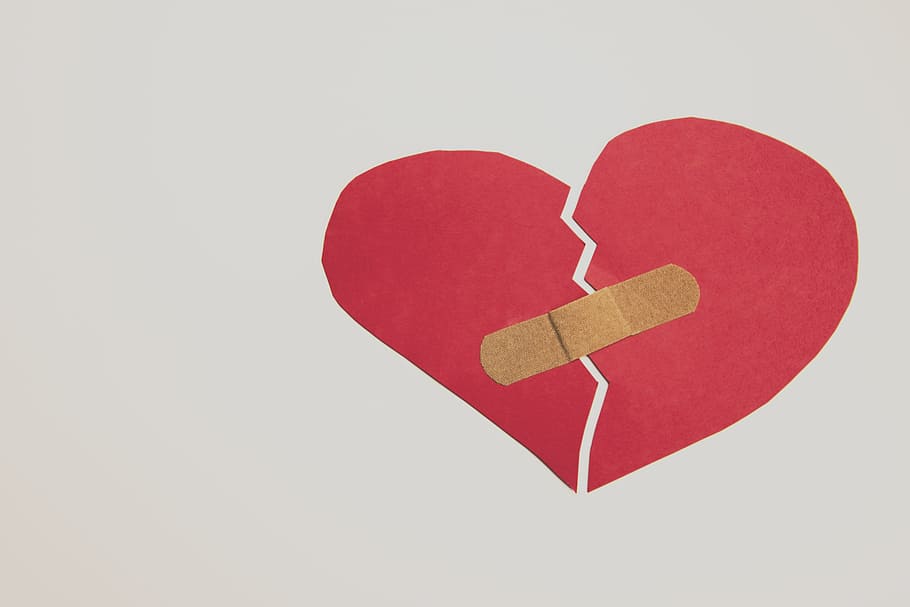The stress of the global pandemic has us unravelling at the seams with looming worries about catching the disease, being confined to our homes, collapsing economies, safety of ourselves and our loved ones or the mere paranoia over constant hand washing. The advent of COVID-19 has made a devastating impact on what was once our “normal” lives.
The triggers related to Covid-19 are now manifesting to give rise to incidences of Stress Cardiomyopathy- commonly known as “broken heart syndrome” as well. New data has shown that cases of stress cardiomyopathy have increased among patients with acute coronary syndrome amid the COVID-19 outbreak.
Study published in JAMA (Journal of the American Medical Association) describes a link between COVID-19 and cases of broken heart syndrome and how, while not a direct cause of the coronavirus, they have found a significant rise in people being hospitalized with symptoms similar to that of broken heart syndrome.
What is Broken Heart Syndrome?
Broken heart syndrome (BHS) is also known as stress cardiomyopathy or Takotsubo syndrome. This condition is described to occur when a portion of the heart muscle ceases to function, leading to severe cardiac dysfunction or failure. Broken heart syndrome is observed to be triggered by extreme and sudden emotional trauma or physical stress.
Because individuals who experience an episode, display similar symptoms to a heart attack, including chest pain and shortness of breath, might mistake it for an actual heart attack. However, broken heart syndrome may be as fatal as a stroke. Other symptoms include irregular heartbeat, low blood pressure and fainting.
The distinction between broken heart syndrome and a heart attack is in BHS there is no blockage to the coronary arteries.
Causes of broken heart syndrome
Although scientists do not know the exact mechanisms that cause stress cardiomyopathy, some experts believe in the unusual response to stress hormones such as adrenaline or emotional trauma that might interfere with the heart’s functions.
Not just emotional stress, people can also develop broken heart syndrome after having physical stress, too, like respiratory distress, stroke, seizure, and bleeding.
COVID-19 and BHS: How Coronavirus contributes
The study done at Cleveland Clinic Lerner College of Medicine analyzed data in patients from two different hospitals, who had acute coronary syndrome—an urgent heart issue. The research spread across four two-month periods in the pre-pandemic days- March-April 2018, January-February 2019, March-April 2019, and January-February 2020, versus patients who presented at the height of the COVID-19 pandemic (March-April 2020). Researchers identified a higher rate of stress cardiomyopathy during the coronavirus pandemic.
7.8% of patients hospitalized during the coronavirus outbreak (20 of the 258 patients) were diagnosed with “broken heart syndrome”. The stress cardiomyopathy rate during those four pre pandemic periods was just between 1.5 and 1.8%, between 5 and 12 patients per period.
It is noteworthy that all the patients during the COVID-19 pandemic tested negative for the illness.
These results go to solidify that, though not directly a cause of the virus, psychological, social, and economic stress related to COVID-19 do factor in with an increased incidence of stress cardiomyopathy. The rise in cases is likely due to “the current environment, with a complex interplay of psychological, social, and economic impact of the pandemic.” The COVID-19 pandemic has brought about multiple levels of stress in people’s lives across the country and world, and this stress can have physical effects on our bodies and our hearts, leading to conditions like broken heart syndrome.
In these trying times, taking care of not only your physical health but also your mental health has become a top priority which should not be ignored.
Prioritize self care
Focus on taking care of your self during this difficult time is critical to your heart health, as well as your overall health. Make self-care a priority to you, when it comes to looking after your body and mind. Engaging in activities like exercise, meditation, and connecting with family and friends, while maintaining physical distance and safety measures, can help relieve anxiety and manage stress better.




